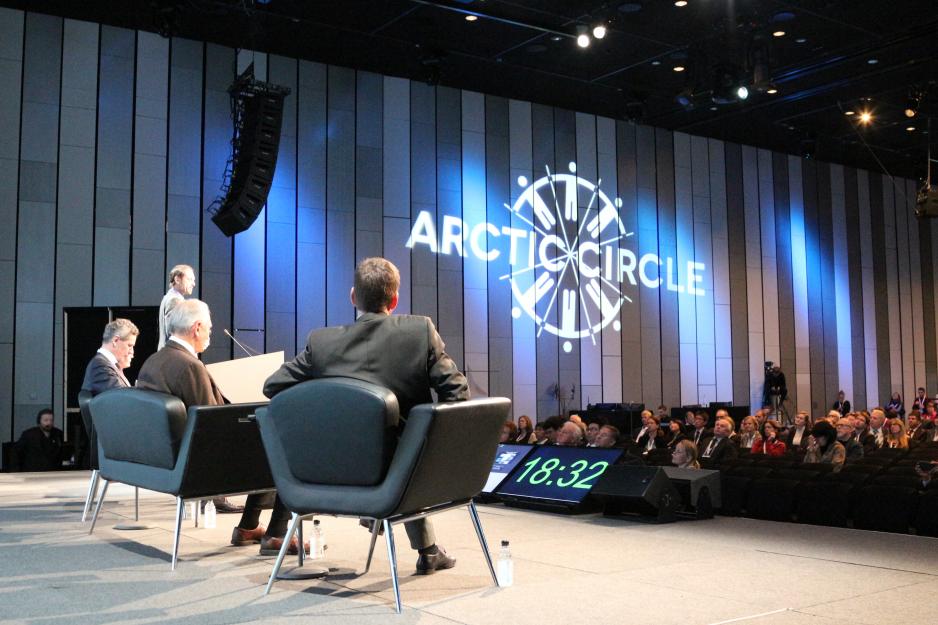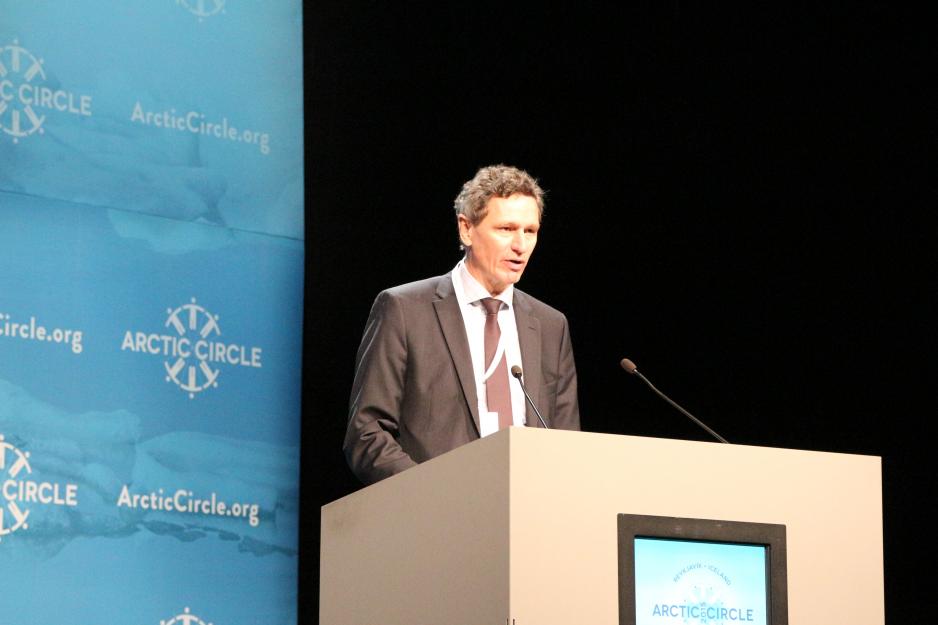Norway will be an active facilitator of Arctic climate research

REYKJAVIK: Norway’s State Secretary and Deputy Minister of Foreign Affairs Tore Hattrem says Norway has stepped up its climate diplomacy over the last year.
The global attention on climate issues has been non-stop in recent times, with up-coming meeting in Paris this December. Unlike most other places, climate change in the Arctic region has become more and more visible.
Tore Hattrem held a key note speech at the Arctic Circle Assembly in Reykjavik this weekend, and highlighted that, for Norway, the High North is not just at the top of the world, it is also the top priority area of interest in Norway-s foreign policy work.
Talk is cheap
The state secretary talked about how a small island in a Svalbard fjord, which nobody even knew was there, had appeared due to glacial melting. This is visible proof of climate change that makes a deep impressions on people visiting the area.
Among the visitors to Svalbard this year, are UN General Secretary Ban Ki Moon, and several US senators.
-
- Does Norway plan to take leadership in climate research?
- Besides our own research in the area, we facilitate and share the infrastructure, and invite other nations to cooperate in polar research areas. Another important area besides facilitating and offering the infrastructure encouraging more accessible data and research results.
Wants more accessible data
Svalbard is unique, accessible, and a hot spot for Arctic know-how and research. By collaborating and sharing infrastructure, the area will also benefit from reduced research and testing impact.
Tore Hattrem says that Norway will work hard to make research results more accessible:
- The more accessible the results and data are, the more action we believe they will make.
And the Arctic needs action. Climate change threatens Arctic wildlife and nature, as well as the world globally.
- Climate change affects everything. It can change food production globally, and in the end also affect security policy.
- Now is the time to act, Hattrem says, and calls for cooperation both globally and locally to reduce carbon emissions.

